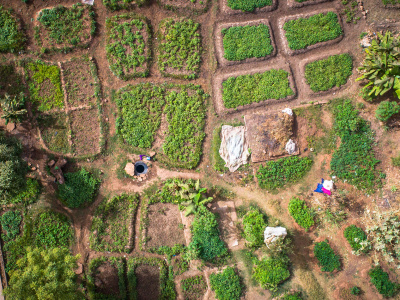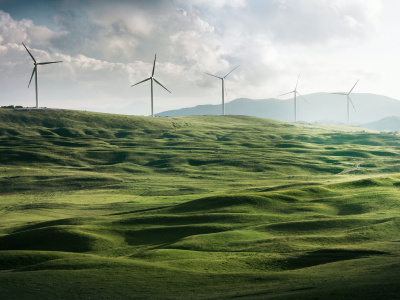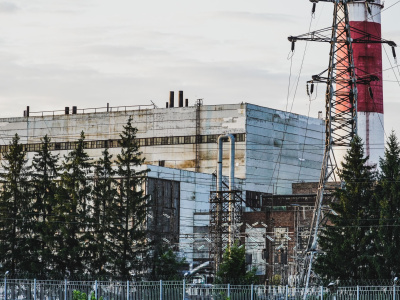
COP25: The eternal challenge of competing interests
The United Nations’ 25th Conference of the Parties, more widely known as COP25, ended last Sunday, nearly two days later than it was supposed to. “I am disappointed with the results of COP25”, UN secretary general Antonio Guterres summed up in a tweet. “The international community lost an important opportunity to show increased ambition on mitigation, adaptation and finance to tackle the climate crisis. But we must not give up, and I will not give up.”
The Madrid conference has disappointed the most vulnerable nations and could not live up to the expectations of young people, in Africa as well as in Europe, who have been demanding strong climate action for more than a year.
Africa was hoping for more solidarity. Europe showed ambition but was torn by different positions of the member states. Success at COP25 was undermined by fragmented multilateralism – Brazil, China and Australia were not ready for big commitments – and by the US withdrawal from the Paris Agreement earlier this year.
COP25 aimed to complete negotiations on the last outstanding issues in the ‘Katowice rulebook’ for implementing the Paris Agreement, notably the rules for international carbon markets (Article 6). These carbon-trading mechanisms are important for how some countries plan to meet their goals, using tactics like restoring a section of tropical rainforest that can absorb carbon dioxide. But COP25 negotiators remained divided over how to set up rules that will decrease overall carbon emissions.

So, COP25 ended with no agreement on carbon markets, postponing this key decision until next year’s COP26 in Glasgow. And while delegates from almost 200 nations endorsed a declaration to help poor countries suffering the effects of climate change, they did not allocate any new funds to do so.
Yet, without urgent climate action, things are bound to get worse. The Global Carbon Project revealed how far the world is from meeting the goals of the Paris climate agreement. Greenhouse gas emissions rose by 0.6% last year. Under current national climate pledges, or nationally determined contributions, the planet is on track to warm by 3.2°C by the end of the century, with disastrous consequences for livelihoods and ecosystems alike. Emissions would have to fall by 7.6% a year for the next ten years to stay within the limits advised by scientists.
Africa’s unmet priorities
I don’t understand why the most affected countries are always underrepresented [at the talks]. I come here to represent millions of African young people who are bearing the brunt of the climate crisis.
African countries are among those most affected by climate change, but they have done little to cause it. About 20 million people a year have been forced to flee from their homes due to climate-fuelled disasters over the last decade, as a recent Oxfam report showed. Studies by the World Bank assert that the worsening impacts of climate change could cause more than 86 million people to migrate within Africa’s borders by 2050.
Two major cyclones struck Mozambique this year, and Zambia and Zimbabwe are currently facing the worst drought in a century. Ethiopia, highly dependent on rainfed agriculture, has experienced declining rainfall during the last ten years, and the trend holds. It is reported that 8.3 million Ethiopians are food insecure, and these numbers are growing as mass internal displacement from inter-communal violence increases.
And there is more. The entire Sahel region in the Western part of Africa is experiencing extreme temperatures, fluctuating rainfall and droughts, all of which can degrade land, change grazing patterns and reduce water supply for both animals and people. This, in turn, jeopardises food security, can have a negative impact on migration and lead to or exacerbate conflict.
Therefore, the key element of the African position at COP25 was to find ways to cope with the increasing numbers of climate-related disasters and to achieve economic development with minimum carbon emissions. In the end, it boils down to who could help Africa in the face of increasing climate impacts.
Global climate financing has increased by 60% over the period 2013-2018, but this is not enough. More resources should be dedicated to climate adaptation, which has been neglected – in particular by European finance institutions, who only allocated 30% of their 2018 climate financing to adaptation. But at the same time, it is also up to African governments to integrate climate adaptation into all development decisions more efficiently.
Europe’s green ambition
The ultimate goal is to make the global economy more sustainable in the long-term. The EU understood this well and on 11 December, during the second week of COP25, new European Commission president Ursula von der Leyen presented her Commission’s European Green Deal. The deal’s objective is to achieve a carbon-neutral Europe by 2050, and pledges a billion euro investment for climate action. Probably, COP25 will be remembered for that. The deal has been accepted by the European Council of EU leaders. However, Poland, that relies on coal for 80% of its energy, opted out.
The Green Deal makes a particularly long reference to Africa, stating that the 2020 summit between the African Union and the EU should be an opportunity to make climate and environmental issues key strands in the relations between the two continents. The document also says that the EU will strengthen its engagement with Africa for the wider deployment and trade of sustainable and clean energy, and green and circular economy, including sustainable energy, food systems and smart cities. The EU will also help tackle the issue of decreasing biodiversity.
This house is on fire! The Europa Building in Brussels this morning @Greenpeace #COP25 #climateemergency #GreenDealEU pic.twitter.com/5PFwjHevAS
— Hanne Louise Knaepen (@Hanne_Tweets) December 12, 2019
Greenpeace managed to hang a banner on the facade of the Europa building in Brussels, just hours before the arrival of European leaders to discuss the Commission’s proposal.
The Green Deal is based on leadership by example. The EU seems determined to become a prominent actor when it comes to climate action – and the timing couldn’t be more perfect. Not only is this a good moment for the Union to take a clear position vis-à-vis China and the United States, but also for the partnership with Africa and its continental free trade area.
The lack of a useful agreement at COP25 puts a big burden on the next mid-year climate talks in Bonn and, ultimately, in Glasgow at COP26. Navigating all the different national interests will be an uphill battle.
The views are those of the author and not necessarily those of ECDPM.




